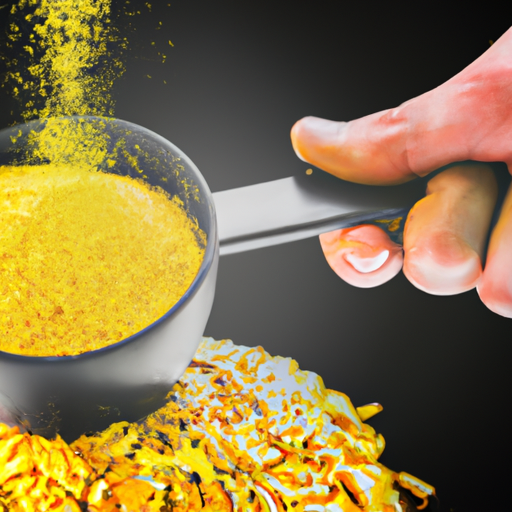
Best Amino Acids For Muscle Growth
-
Contents
Table of Contents
Amino acids are the building blocks of proteins, and proteins are essential for muscle growth. Therefore, it is important to understand which amino acids are best for muscle growth. This article will discuss the best amino acids for muscle growth, their benefits, and how to incorporate them into your diet. We will also discuss the importance of protein for muscle growth and how to ensure you are getting enough of the right amino acids. Finally, we will discuss the potential side effects of taking too much of certain amino acids.
The Top 5 Essential Amino Acids for Muscle Growth
Amino acids are essential for muscle growth and development. They are the building blocks of proteins, which are the main components of muscle tissue. There are 20 different amino acids, but only five of them are considered essential for muscle growth. These essential amino acids are leucine, isoleucine, valine, lysine, and methionine.
Leucine is the most important of the essential amino acids for muscle growth. It helps to stimulate muscle protein synthesis, which is the process of building muscle. It also helps to regulate blood sugar levels and can help to reduce body fat.
Isoleucine is another essential amino acid for muscle growth. It helps to regulate energy levels and can help to reduce fatigue. It also helps to promote muscle recovery after exercise.
Valine is an essential amino acid that helps to promote muscle growth and repair. It also helps to regulate blood sugar levels and can help to reduce fatigue.
Lysine is an essential amino acid that helps to promote muscle growth and repair. It also helps to regulate hormones and can help to reduce stress.
Methionine is an essential amino acid that helps to promote muscle growth and repair. It also helps to regulate hormones and can help to reduce inflammation.
These five essential amino acids are essential for muscle growth and development. They help to stimulate muscle protein synthesis, regulate energy levels, regulate hormones, and reduce fatigue and inflammation. By including these essential amino acids in your diet, you can ensure that your muscles are getting the nutrients they need to grow and develop.
How to Maximize Muscle Growth with Amino Acids
Amino acids are essential for muscle growth and development. They are the building blocks of proteins, which are the main components of muscle tissue. Therefore, it is important to ensure that you are getting enough amino acids in your diet to maximize muscle growth. Here are some tips on how to do this.
First, make sure that you are consuming enough protein. Protein is made up of amino acids, so it is important to get enough of it in your diet. The recommended daily intake of protein is 0.8 grams per kilogram of body weight. If you are trying to build muscle, you may need to increase this amount.
Second, consider supplementing with branched-chain amino acids (BCAAs). BCAAs are a group of three essential amino acids (leucine, isoleucine, and valine) that are important for muscle growth and development. Supplementing with BCAAs can help to ensure that you are getting enough of these essential amino acids.
Third, make sure that you are getting enough essential amino acids. Essential amino acids are those that your body cannot produce on its own and must be obtained from food sources. Examples of essential amino acids include lysine, methionine, and tryptophan. Eating a variety of protein-rich foods can help to ensure that you are getting enough of these essential amino acids.
Finally, consider taking a multivitamin or amino acid supplement. Multivitamins and amino acid supplements can help to ensure that you are getting all of the essential amino acids that you need for muscle growth and development.
By following these tips, you can ensure that you are getting enough amino acids to maximize muscle growth. Eating a balanced diet and supplementing with BCAAs and other essential amino acids can help to ensure that you are getting all of the nutrients that you need for optimal muscle growth.
The Benefits of Branched Chain Amino Acids for Muscle Growth
Branched Chain Amino Acids (BCAAs) are essential amino acids that are essential for muscle growth and development. BCAAs are composed of three amino acids: leucine, isoleucine, and valine. These three amino acids are metabolized differently than other amino acids, and are used directly by the muscles for energy. BCAAs are found in many foods, including dairy products, eggs, meat, fish, and legumes.
BCAAs are important for muscle growth and development because they stimulate protein synthesis, which is the process by which cells build proteins. BCAAs also help to reduce muscle breakdown during exercise, which can help to prevent muscle loss. Additionally, BCAAs can help to reduce fatigue and improve recovery time after exercise.
BCAAs can be taken as a supplement in the form of capsules, tablets, or powders. When taken as a supplement, BCAAs can help to increase muscle mass and strength, as well as reduce muscle soreness and fatigue. BCAAs can also help to improve endurance and reduce the risk of injury.
In addition to their benefits for muscle growth and development, BCAAs can also help to improve overall health. BCAAs can help to reduce inflammation, improve immune system function, and reduce the risk of certain diseases. BCAAs can also help to improve mental clarity and focus, as well as reduce stress and anxiety.
Overall, BCAAs are an important part of any fitness program. They can help to improve muscle growth and development, reduce fatigue and muscle soreness, and improve overall health. For those looking to maximize their fitness goals, BCAAs are an excellent supplement to consider.
The Role of Glutamine in Muscle Growth
Glutamine is an amino acid that plays an important role in muscle growth. It is the most abundant amino acid in the body and is found in high concentrations in skeletal muscle. Glutamine is essential for the synthesis of proteins, which are the building blocks of muscle. It is also involved in the regulation of muscle metabolism and the maintenance of muscle mass.
Glutamine is involved in the synthesis of proteins, which are necessary for muscle growth. It helps to increase the rate of protein synthesis, which is the process by which proteins are formed from amino acids. Glutamine also helps to reduce muscle breakdown, which is important for maintaining muscle mass.
Glutamine is also involved in the regulation of muscle metabolism. It helps to regulate the release of energy from muscle cells, which is important for muscle growth. Glutamine also helps to regulate the release of hormones, such as growth hormone and insulin-like growth factor, which are important for muscle growth.
Glutamine is also important for the maintenance of muscle mass. It helps to reduce muscle breakdown, which is important for maintaining muscle mass. Glutamine also helps to reduce inflammation, which can lead to muscle loss.
Glutamine is found in many foods, including meat, fish, dairy products, eggs, and legumes. It can also be taken as a supplement. Taking a glutamine supplement can help to increase muscle growth and reduce muscle breakdown.
In conclusion, glutamine is an important amino acid that plays an important role in muscle growth. It is involved in the synthesis of proteins, the regulation of muscle metabolism, and the maintenance of muscle mass. Taking a glutamine supplement can help to increase muscle growth and reduce muscle breakdown.
The Benefits of Creatine and Other Non-Essential Amino Acids for Muscle Growth
Creatine and other non-essential amino acids are important components of a healthy diet and can be beneficial for muscle growth. Creatine is a naturally occurring compound found in the body and is also found in certain foods such as red meat and fish. It is an important source of energy for muscle cells and helps to increase muscle mass and strength. Other non-essential amino acids, such as glutamine and arginine, are also important for muscle growth and development.
Creatine is a popular supplement among athletes and bodybuilders due to its ability to increase muscle mass and strength. It works by increasing the availability of adenosine triphosphate (ATP), which is the primary energy source for muscle cells. Creatine also helps to reduce fatigue and improve recovery time after exercise. Studies have shown that supplementing with creatine can increase muscle mass and strength by up to 15%.
Glutamine is another non-essential amino acid that is important for muscle growth. It helps to increase protein synthesis and reduce muscle breakdown. Glutamine also helps to reduce fatigue and improve recovery time after exercise. Studies have shown that supplementing with glutamine can increase muscle mass and strength by up to 10%.
Arginine is another non-essential amino acid that is important for muscle growth. It helps to increase nitric oxide production, which helps to increase blood flow to the muscles. This increased blood flow helps to deliver more oxygen and nutrients to the muscles, which can help to increase muscle mass and strength. Studies have shown that supplementing with arginine can increase muscle mass and strength by up to 8%.
In conclusion, creatine and other non-essential amino acids can be beneficial for muscle growth. They can help to increase muscle mass and strength, reduce fatigue, and improve recovery time after exercise. However, it is important to note that these supplements should be used in conjunction with a healthy diet and regular exercise for optimal results.
Q&A
1. What are the best amino acids for muscle growth?
The best amino acids for muscle growth are leucine, isoleucine, and valine (the branched-chain amino acids, or BCAAs), as well as glutamine, arginine, and lysine.
2. How do amino acids help with muscle growth?
Amino acids are the building blocks of proteins, which are essential for muscle growth. They help to repair and build muscle tissue, as well as providing energy for muscle contraction.
3. What foods are high in amino acids?
Foods high in amino acids include eggs, dairy products, fish, poultry, nuts, and legumes.
4. How much protein do I need for muscle growth?
The amount of protein you need for muscle growth depends on your activity level and goals. Generally, it is recommended to consume 1.2-2.0 grams of protein per kilogram of body weight per day.
5. What are the side effects of taking too many amino acids?
Taking too many amino acids can lead to nausea, vomiting, diarrhea, and abdominal pain. It can also cause dehydration, electrolyte imbalances, and kidney damage.In conclusion, the best amino acids for muscle growth are those that are essential, such as leucine, isoleucine, and valine. These three amino acids are the building blocks of protein and are essential for muscle growth and repair. Additionally, other amino acids such as glutamine, arginine, and lysine can also be beneficial for muscle growth. However, it is important to remember that the best way to ensure optimal muscle growth is to consume a balanced diet that includes all of the essential amino acids.

